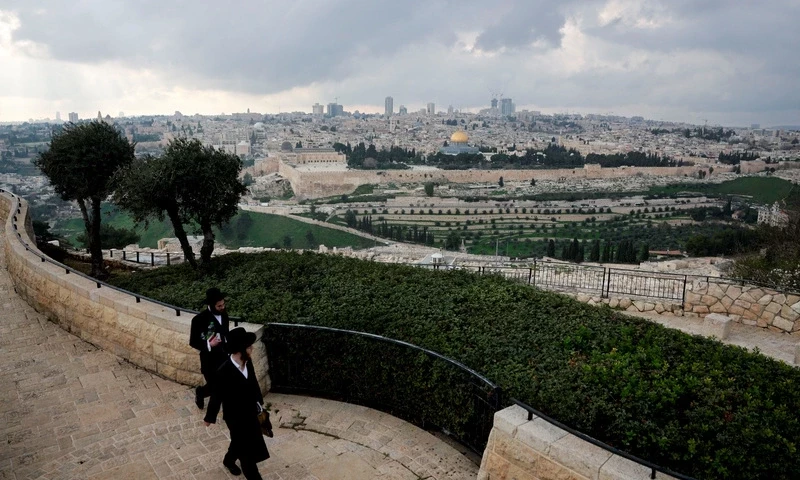Jews and their modern beliefs on Jerusalem
Jewish beliefs center on the concept of one God, the creator and ruler of the universe, and the importance of adhering to God’s laws as revealed in the Torah.
Jews are members of the Jewish people, an ethnoreligious group and nation that originates from the ancient Israelites and Hebrews of the Middle East.
Jews share a historical and linguistic heritage, including languages like Hebrew, Yiddish, Ladino, and Judeo-Arabic.
Jews come from many geographic and cultural backgrounds:
- Ashkenazi Jews – from Central and Eastern Europe
- Sephardi Jews – originally from Spain and Portugal
- Mizrahi Jews – from the Middle East and North Africa
- Beta Israel – Ethiopian Jews
- Cochin and Bene Israel Jews – from India
Jerusalem is also central to Jewish eschatology, with many believing that the Temple will be rebuilt and Jerusalem will become the center of the world in the Messianic Age.
Jews and their eyes on Jerusalem
For Jews, Jerusalem is the ancient capital of Israel and the site of the First and Second Temples, holding profound religious and historical importance.
The Temple Mount is the holiest site in Judaism, believed to be where the First and Second Temples stood.
Jews traditionally pray facing Jerusalem, and the Western Wall, the last remnant of the Second Temple, is a site of pilgrimage and prayer.
According to the Pluralism Project, “in Hamburg in 1818, a group of reform-minded Jews started a synagogue which they called a temple, a name once reserved for the holy temple in Jerusalem in the expectation of return, but now applied to a place of worship in Germany where Jews had put down roots as citizens.”
The Western Wall, the last remaining structure of the Second Temple, is a place of intense prayer and pilgrimage.
In Islamic tradition, the Quran describes Jerusalem as the final stop on the Prophet Muhammad’s night journey before he ascended to heaven and spoke with God in the 7th century.
According Israel365 News, “they [Anti-Zionist Haredi group] are actively preparing for the rebuilding of the Temple in Jerusalem.”
“The Temple Institute is actively engaged in the research and preparation of the resumption of service in the holy temple to the extent of actually preparing operational blueprints for the construction of the temple according to the most modern standards,” Temple Institute in Jerusalem director Chaim Richman said on CBN website.
The construction and total control of Jerusalem depend on the future, as there are different scriptures in diverse religions for this place.
The traditional Water Pouring ceremony during Sukkot is considered the most joyful celebration, as the Bible describes the Feast of Tabernacles as the happiest of all the festivals. In contrast, Passover (Pessach) is not associated with joy in the scriptures, and joy is mentioned only once in relation to Shavuot (Pentecost).
History of Jerusalem
Scholars believe that the earliest human settlements in Jerusalem began around 3500 B.C., during the Early Bronze Age.
Around 1000 B.C., King David captured Jerusalem and established it as the capital of the Jewish kingdom. About 40 years later, his son King Solomon built the First Temple there.
In 586 B.C., the Babylonians invaded Jerusalem, destroyed the Temple, and exiled the Jewish population. Roughly 50 years later, Persian King Cyrus allowed the Jews to return and rebuild the Temple, beginning the Second Temple period.
Jerusalem came under the control of Alexander the Great in 332 B.C.
In 37 B.C., King Herod renovated the Second Temple and reinforced it with large retaining walls.
The Romans destroyed the Second Temple in A.D. 70.
By A.D. 632, after the death of the Prophet Muhammad, Islamic tradition holds that he ascended to heaven from Jerusalem, making the city significant in Islam.
Christian pilgrimages to Jerusalem began as early as the 1st century A.D. From 1099 to 1187, European Christian crusaders occupied the city, recognizing it as a major religious center.
The Ottoman Empire ruled Jerusalem and much of the Middle East from approximately 1516 until 1917.
Following World War I, Great Britain took control of Jerusalem as part of the British Mandate of Palestine. British rule lasted until the establishment of the State of Israel in 1948.
During Israel’s first two decades, Jerusalem was divided: Israel governed the western part, while Jordan controlled the eastern section, including the Old City. After the 1967 Six-Day War, Israel captured and unified all of Jerusalem.
For the latest news, follow us on Twitter @Aaj_Urdu. We are also on Facebook, Instagram and YouTube.


























Comments are closed on this story.